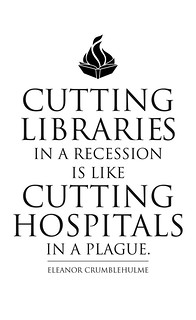Economically, times are still tough, and the crazy global decisions made during 2016 will not make them any easier. Here are 5 ways in which KM can help.
Firstly recession is a time of change and disruption, when old business models and assumptions crumble, and new models need to be worked out quickly. The company that does not learn and adapt, does not survive. This report from the Economist Intelligence Unit includes a survey of 349 executives in the depths of the recession between Dec 08 and Jan 09, on the topic of "Business agility" - a very important asset in turbulent times. When asked to rank what they will do to increase agility, the action of "Improving knowledge management and information sharing processes" was ranked the second highest, chosen by 38% of those interviewed.
The report concludes as follows -
"For most companies, the path to organisational agility involves transformation, the ability to whittle away at inefficiency and regroup around what is truly core to the business. While the task may appear daunting, there are a number of steps that management can consider to lighten the burden of change:
- Optimise core processes.
- Minimise information silos.
- Integrate and automate fundamental knowledge-sharing processes.
"Getting through tough times" is arguably now Critical Knowledge Topic #1. If you view Knowledge Management as the systematic and strategic acquisition and deployment of knowledge, then KM need to be turned up to maximum setting, and aimed at "Learning how to adapt".
Secondly, a downturn is a time when your knowledge starts to leave the building. With every departing employee, some critical know-how disappears. If you already have a robust Knowledge Management Framework in place the risk of knowledge loss may not be too great, but if you haven't then you need to take action to use KM to retain, as best you can, some of this knowledge. Now is not the time to be letting assets leak away. You need the following
1). A strategic review of your corporate know-how, to identify those knowledge topics where you cannot afford to risk any loss, and then let HR know that experts and experienced practitioners in these areas should be preferably retained
2) A mapping of those individuals at high risk of loss (through early retirement, or because HR has already committed to losing them) who map onto these critical knowledge topics
3) A sensitive and effective program of knowledge retention
Thirdly, when the value of your financial assets is low, you look to release the value from your other assets. Knowledge is an asset you have for free - you already own it. Why not see how much value you can release from this (often unmanaged) asset? When work is slack, you have the time and the resources to release this value. You can direct people towards identifying crucial knowledge, developing current best practice, and using the know-how of the organisation to rework and improve processes, procedures and business models, so that when the upturn comes, you hit the ground running (and running much faster than your competitors).
Think about it - what does a football team do between matches? They learn and they train. They study themselves, they study their past performance, they study their opponents, and they improve their performance for the future. What does an army do, between wars? They learn and they train. They study themselves, they study their past performance, they study their opponents, and they improve their performance for the future. So what should a bank, or a business, do between business cycles? The answer seems obvious to me.





No comments:
Post a Comment